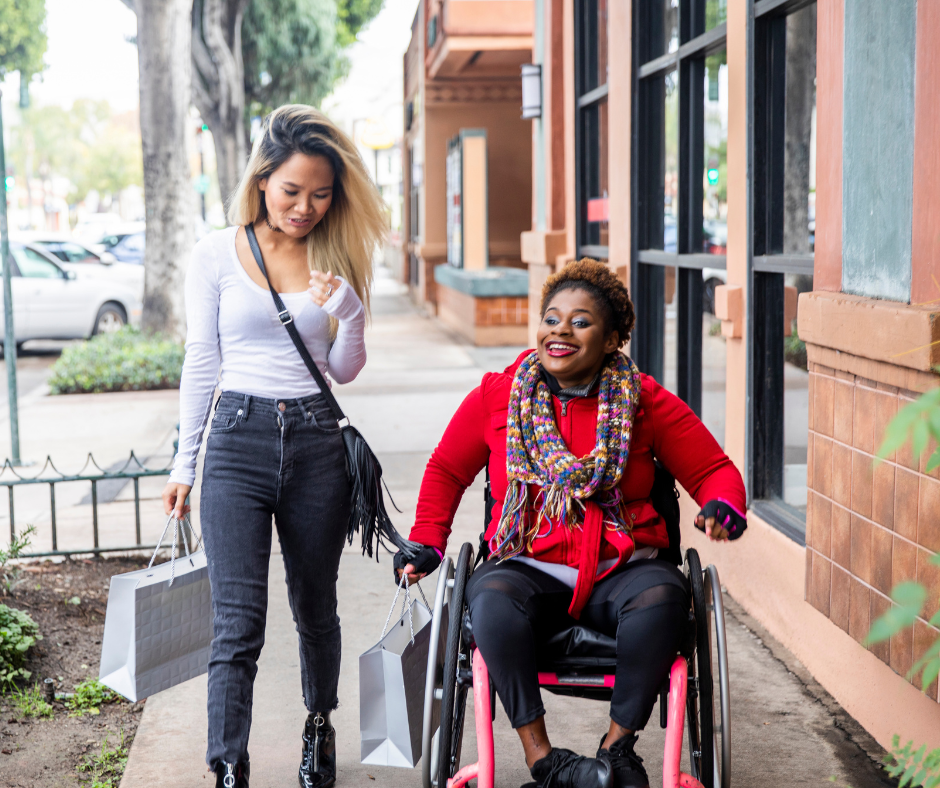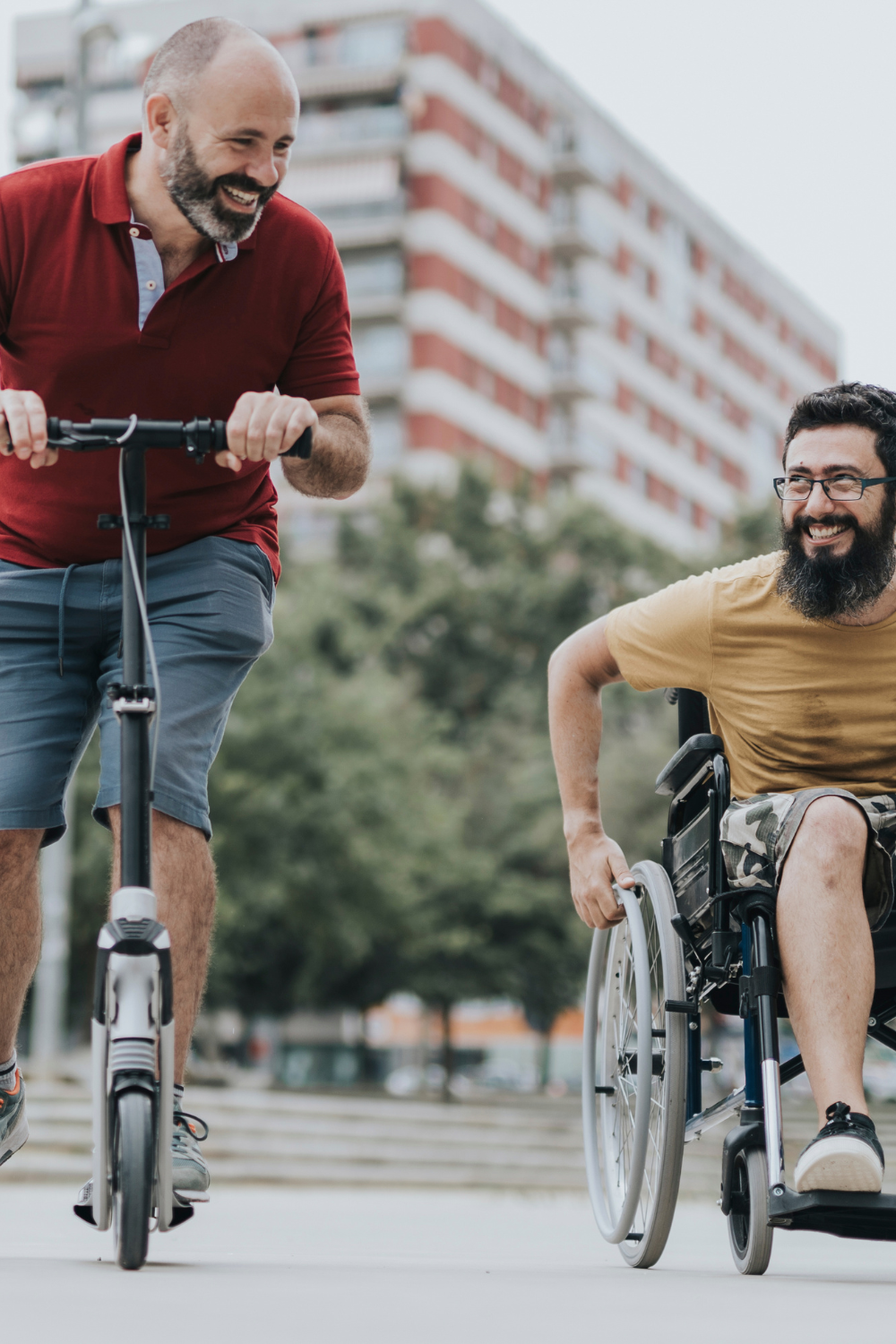Living with a disability can present unique challenges, but it doesn’t mean that finding purpose and meaning in life is out of reach. Regardless of physical or cognitive limitations, individuals with disabilities can lead fulfilling and purposeful lives. Discovering a sense of purpose can provide a strong foundation for personal growth, resilience, and overall well-being. So, here are a few strategies and approaches that can help individuals with disabilities find purpose and meaning in their lives.
Identify personal values and interests
The first step in finding purpose when disabled is to identify your personal values and interests. Reflect on what truly matters to you and what brings you joy and fulfillment. Consider your passions, talents, and areas where you feel a strong sense of engagement. By aligning your activities and pursuits with your core values and interests, you can cultivate a sense of purpose that is meaningful and fulfilling.
When you live with a disability, understanding your values and interests becomes even more crucial. Your disability may have influenced your perspective and priorities, and taking the time to reflect on what is truly important to you can guide you toward a purposeful life. For example, if you value creativity and are passionate about art, you can explore various artistic mediums that accommodate your abilities.
Explore different activities and hobbies

Engaging in activities and hobbies that you enjoy can bring a sense of purpose and fulfillment. Explore different options and experiment with activities that are accessible and aligned with your abilities and interests. This could include art, music, writing, gardening, sports, volunteering, or any other activity that brings you joy and a sense of meaning. The key is to find activities that ignite your passion and allow you to express yourself in a way that resonates with you.
When living with a disability, finding activities and hobbies that accommodate your needs and abilities is essential. Fortunately, there is a wide range of adaptive sports, arts programs, and recreational activities available that cater to individuals with disabilities, as well as helpful disability aids that can help you make your dreams come true. For example, if you love sports, you can explore wheelchair basketball, adaptive skiing, or para-swimming.
Advocate for disability rights and awareness
Disability advocacy can be a powerful way to find purpose and make a positive impact. By raising awareness about disability rights, challenging stereotypes, and advocating for inclusivity and accessibility, you can contribute to creating a more inclusive society. Get involved in local or national advocacy organizations, participate in awareness campaigns, or share your experiences to inspire change and empower others.
Advocacy and raising awareness are key components of finding purpose as an individual with a disability. Your experiences and insights are valuable in shaping public perceptions and influencing policies. Through advocacy, you can educate others about the challenges faced by individuals with disabilities and promote equal opportunities.
Explore professional and educational opportunities
Finding purpose in the realm of work and education is also important. Explore professional opportunities that align with your skills, interests, and abilities. Look for companies or organizations that prioritize inclusivity and accessibility. Consider furthering your education through online courses or vocational training programs that can enhance your skills and open up new possibilities
Employment and education are avenues through which individuals with disabilities can find purpose and contribute their talents and skills to society. Many companies and organizations are recognizing the value of diversity and inclusivity and are actively seeking to hire individuals with disabilities. By pursuing work or educational opportunities that align with your interests and abilities, you can not only find purpose but also make a meaningful impact in your chosen field.
Practice self-care and emotional well-being

Taking care of your physical and emotional well-being is essential in finding purpose when disabled. Prioritize self-care activities that support your overall well-being, such as practicing mindfulness, engaging in relaxation techniques, seeking therapy or counseling, or participating in activities that promote self-expression and self-compassion. When you care for yourself, you are better equipped to pursue your passions and find meaning in life.
Living with a disability often comes with unique physical and emotional challenges. Therefore, prioritizing self-care becomes crucial in maintaining overall well-being. Engaging in activities that promote relaxation, stress reduction, and emotional healing can greatly contribute to finding purpose. Practices such as meditation, yoga, journaling, or engaging in creative pursuits like painting or writing can be outlets for self-expression and self-reflection. Remember, taking care of yourself is not a selfish act but a necessary one that allows you to be your best self and pursue a purposeful life.
Finding purpose when disabled is a deeply personal journey that requires self-reflection, exploration, and resilience. Remember, disability does not define you or limit your potential for leading a fulfilling and purposeful life. Embrace your unique experiences, talents, and passions, and let them guide you toward a purposeful and meaningful existence.



